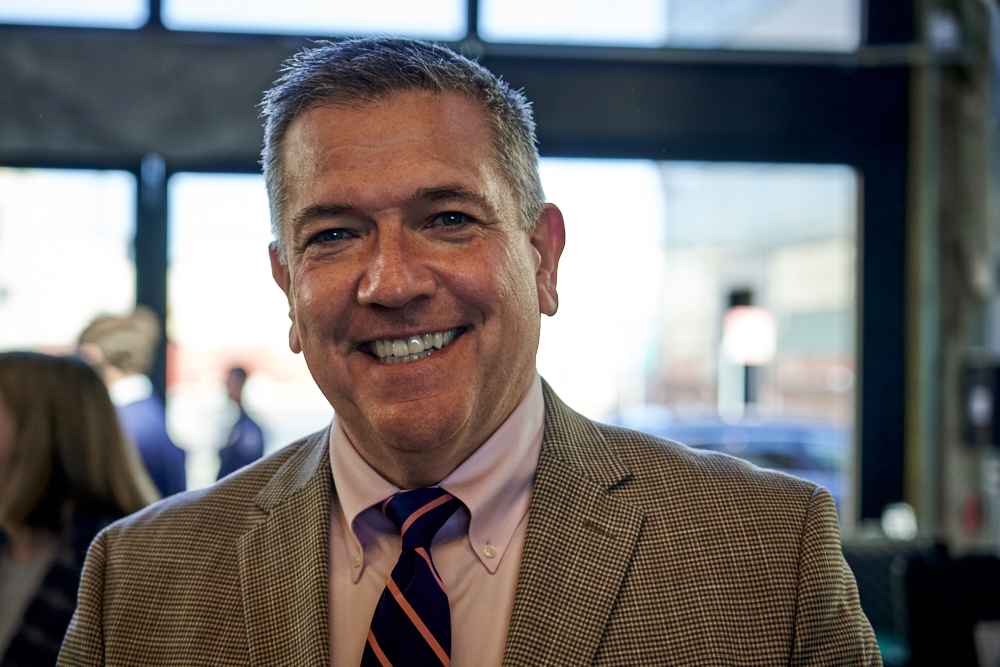The San Francisco Board of Supes passed a landmark privacy law in 2019 that requires the cops to report in public when they develop or use surveillance technology to spy on people.
It’s been a success: Every year, the supes get a report on new spy tech, and the public gets a chance to see who is watching, and how. It also bans facial recognition technology, which is widely regarded as racist and unreliable.

The law also includes an enforcement provision (in case, for example, the district attorney, who works with the cops, and the city attorney, who represents the Police Department, decide not to do anything about violations.) Private entities who find violations can sue, and get attorney’s fees:
Any alleged violation of this Chapter 19B for which the City received notice under subsection (c) and that is not corrected by the Department within 30 days of receipt of the notice, constitutes a legally cognizable basis for relief.
First, the private individual or organization has to notify the city of the violation. Then the city gets 30 days to fix it. Only if the city fails to act is a lawsuit allowed.
In 2024, Secure Justice, a nonprofit, sued the city, saying that in 42 instances, the SFPD failed to provide the necessary notice. Among other things, the lawsuit states that the cops are violating the rules against using facial recognition technology. From the lawsuit:
In 2021, Secure Justice received documents that confirmed that SFPD was violating the prohibition on FRT by outsourcing FRT use to third partiesólike the Daly City Police Department and the Northern California Regional Intelligence Center (ìNCRIC,î a local federal-state fusion center)
The group gave the city notice to correct the problems, but that never happened, the suit alleges.
Now Sup. Matt Dorsey, a former press flack for SFPD and a close pal of the cops, wants to gut that provision of the law, saying that it encourages “baseless but costly lawsuits” and that the law was “an onerous mess.”
The vast majority of the $70 million in lawsuit settlements against the SFPD since 2010 have involved deaths, violent misconduct, wrongful arrest, and excessive force. Surveillance enforcement is a tiny fraction.
But Dorsey seems to think the law itself is a problem, that the cops should have a lot more leeway to spy on us all, and that only the DA and the city attorney, who have inherent conflicts, should be able to enforce the rules.
The Electronic Frontier Foundation argues that enforcement is critical:
Without an enforcement mechanism to hold police accountable, many will just ignore the law. They’ve done it before. AB 481 is a California state law that requires police to get elected official approval before attempting to acquire military equipment, including drones. The SFPD knowingly ignored this law. If it had an enforcement mechanism, more police would follow the rules.
Former Sup. Aaron Peskin, who sponsored the original bill, noted:
“If there were ever a time not to undermine laws to stop the government from spying on its people, this would be the time.”
This is happening at the same time as the cops are moving their spy operations into a building controlled by a crypto billionaire.
Dorsey is just introducing his bill. We will track it as it works its way through the system.
Sup. Myrna Melgar has introduced a bill that would exempt luxury housing developers in wealthy communities from paying for affordable units, if they agree to put their new high-end apartments under rent control.
The measure, which comes before the Planning Commission Thursday/9, would also allow the exemption if the developer set aside land for future affordable housing development.
Under state law, all housing built since 1979 is exempt from rent control. But developers can agree to place their units under the city’s rent law as part of a deal to allow more construction.
The problem here is that no developer is building anything other than luxury housing right now—and most developers aren’t building anything at all. The Chron’s J.K.Dineen reports that developers say they won’t build until rents in the city are up by another 20 percent.
That means a one-bedroom apartment would have to rent for $4,200 before it gets built—and that’s at the low end.
As the Planning Department notes:
Rent control does not limit the rental price when a unit first comes onto the market or after a tenant vacates the unit. This means that the new units resulting from this proposed Ordinance would be leased at market rates. Caps on allowable increases would be less than inflation, making these units more affordable over time. Rents would reset to market rate when the master tenants change. This contrasts with Inclusionary Housing where rents are limited throughout the life of the building.
Maybe a tenant who moves in at $4,200 a month and stays there for 20 years will be paying below-market rent. But that tenant is already rich enough to afford luxury housing in San Francisco.
In the meantime, permanently affordable units, that are price controlled based on income, will be lost to the city.
All of this in the name of making housing more affordable for “families” by deregulating the private market.
That meeting starts at noon.
The full board will certify Tuesday/7 the results of the District Four recall election, starting the clock on the end of Sup. Joel Engardio’s term in office. Under the City Charter, Mayor Daniel Lurie has ten days to sign the certification, at which point Engardio must vacate his seat immediately.
That will happen before the mayor’s new zoning legislation gets to the board, so the person Lurie appoints will have to vote on a measure that could determine whether they remain in office.
Lurie and state Sen. Scott Wiener are going to hold some sort of town hall in the Sunset this week. I don’t know the details, but the voters who helped put both of them in office are not happy.








